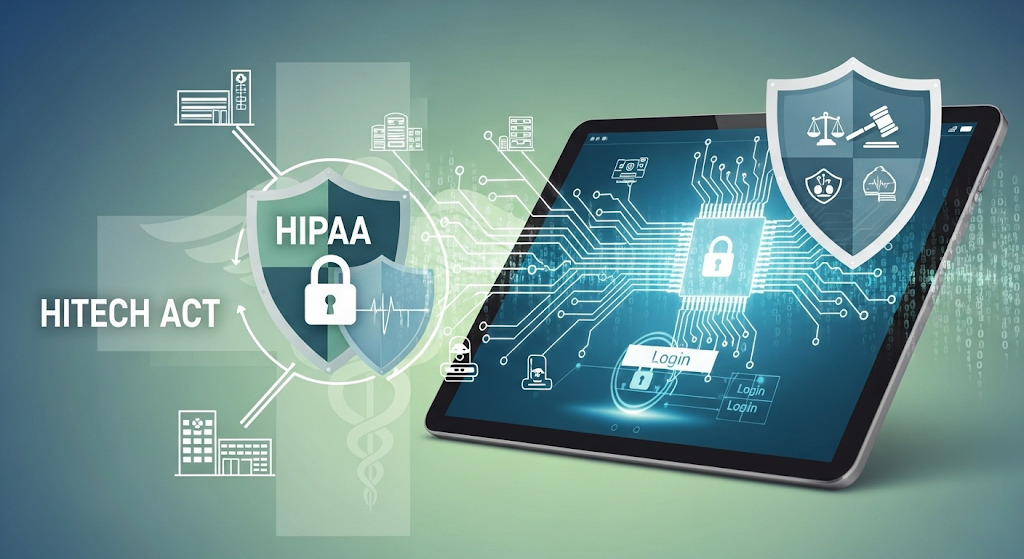Purpose of the HITECH Act
The ARRA HITECH Act, introduced by HHS [1], outlines requirements for compliance with the security and privacy regulations of the HIPAA Privacy Rule. It promotes the expansion of HIPAA standards for Electronic Medical Records (EMR) to facilitate the national electronic exchange of health information, enhancing organization and transparency in medical care. Additionally, it provides incentives for covered entities adopting Electronic Health Records (EHR) [2] to improve patient care and data management.

Non-compliant entities face increased vulnerability to civil penalties, as emphasized by the National Institutes of Health [3], which provides detailed guidance on HIPAA compliance and research protections.
Regulatory Impact
The HITECH Act serves as a regulatory measure anticipating the surge in EHR adoption driven by ARRA’s financial incentives. Healthcare facilities seeking these incentives must ensure full compliance with HIPAA benchmarks to avoid losing financial rewards and risking civil or criminal liabilities, consistent with the CDC Public Health Law Program [4].
Enforcement and Accountability
While the Privacy Rule establishes standards for HIPAA compliance, the HITECH Act emphasizes the importance of adherence and provides detailed guidelines on enforcement, accountability, penalties, and prosecution for those involved in accessing or sharing Protected Health Information (PHI), as described in NYU’s HIPAA Compliance Guidance [5].
Key Compliance Benchmarks
The HITECH Act ensures that healthcare facilities and practitioners adopting EHR methodologies comply with HIPAA Privacy Rule regulations to protect PHI. Key compliance benchmarks include:
- Defining penalties for healthcare professionals found guilty of Privacy Rule violations through the HHS Enforcement Rule [1].
- Establishing access to medical data via Electronic Health Records as a national standard for storing and accessing patient information, explained by the ONC [2].
- Introducing accountability clauses and penalties for Business Associates that violate HIPAA, summarized in eDocScan’s HITECH compliance overview [6].
- Implementing mandatory notifications for PHI breaches, emphasizing the need to inform affected patients, as reinforced by NIH guidance [3].
References
- HITECH Act – HHS HIPAA and HITECH Enforcement (.gov): https://www.hhs.gov/hipaa/for-professionals/special-topics/hitech-act-enforcement-interim-final-rule/index.html
- Electronic Health Records – ONC Privacy & Security and HIPAA (.gov): https://www.healthit.gov/topic/privacy-security-and-hipaa
- HIPAA Compliance Overview – NIH (.gov): https://privacyruleandresearch.nih.gov/
- HIPAA Overview – CDC Public Health Law Program (.gov): https://www.cdc.gov/phlp/php/resources/health-insurance-portability-and-accountability-act-of-1996-hipaa.html
- HIPAA Compliance Guidance – NYU (.edu): https://www.nyu.edu/about/policies-guidelines-compliance/policies-procedures/hipaa.html
- The HITECH Act & HIPAA Compliance Regulations – eDocScan (.com): https://www.edocscan.com/hitech-act-hipaa-compliance-regulations